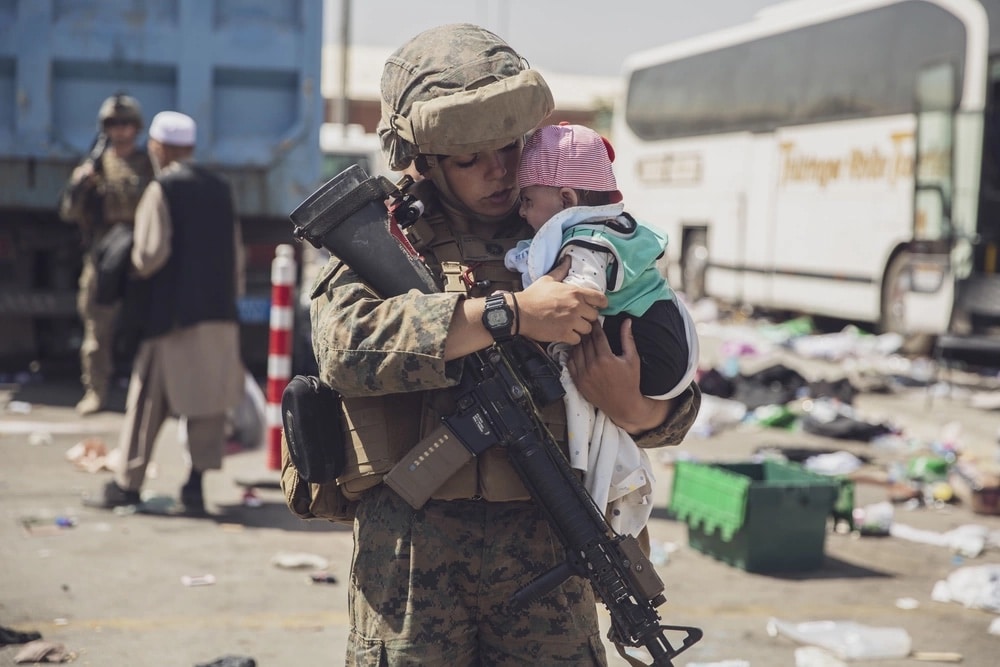By
As I write this, the United States has just hours before completing its total withdrawal — per its self-imposed August 31 deadline — of all remaining troops from the still-named (for now) Hamid Karzai International Airport (HKIA) in Kabul, Afghanistan, thus ending the 20-year Afghan War. So what comes next?

Should we keep a diplomatic and/or intelligence presence in Afghanistan?
This is probably the most pressing and immediate question to answer. Will the United States place a diplomatic presence in Taliban-controlled Afghanistan? Secretary of State Anthony Blinken has seemingly poured cold water on this idea, although it should be noted that such denials, at present, do not necessarily mean that it will not happen in the medium-to-long term. The international community will, after all, have to deal with the Taliban for now. What form those dealings take remains to be seen. Russia and China will no doubt treat them as legitimate governing authorities, with full diplomatic representation. Whether the United States does so — down the road — remains to be seen.
As far as an American intelligence presence in the country, when it comes to human intelligence collection, such a presence oftentimes — but not always — goes hand-in-hand with a diplomatic presence. The CIA and other intelligence agencies will have to weigh risk versus reward, and evaluate whether American intelligence personnel can safely operate in Afghanistan, and if so, under what auspices. In other words, will CIA officers embed in the Panjshir Valley with Ahmad Massoud’s resistance forces? Will they work out of Tajikistan and make forays into Afghanistan as needed/required? Those discussions are no doubt taking place at this very moment. Technical intelligence collection platforms are another matter, and I will let you use your imagination on that one.

How can we effectively do the necessary counter-terrorism (CT) work in Afghanistan?
Regardless of whether we continue to send American intelligence officers into Afghanistan, the CT work there will need to continue. It would be foolish and naive to think Afghanistan is not about to have a re-emergent terrorism problem. ISIS-K is already inside the country, as are remnants of al-Qaeda, and other actors will no doubt make their way there if they have not already. The U.S. and other Western democracies — as well as those other countries regularly threatened by global terrorism groups — will need to come up with a plan, and quickly, to prevent Afghanistan from reverting to its pre-9/11 status as a terrorism breeding ground.
How do we want to “handle” the Taliban?
This consideration goes hand-in-glove with the first, in that how we handle the Taliban depends upon how we decide to treat them from the point of view of international diplomacy. If we shun them completely, a la North Korea, then we will lose any and all influence we might have hoped to have over them (which, admittedly, would not have been much). If we go a middle route, and engage with them via a combination of infrequent direct talks and talks through intermediaries, as we do with Iran, then a modicum of influence can be maintained. This seems like the most likely course of action. The final option is full diplomatic relations. This, again, seems unlikely at this point, even if it is a remote possibility in the future.

What is the impact on Great Power politics?According to many foreign policy experts, the U.S. government has arguably dealt itself and the country a measure of self-harm with regards to its role in global power politics, as a result of its hasty and seemingly ill-conceived withdrawal policy. China and Russia are gloating, and no doubt feeling gleeful as they witness America withdraw, wounded and chastened. American leadership will have to move past that, and use the opportunity to re-focus on strategic priorities that re-assert American influence across the globe.
This means more resources and intellectual capital put toward East Asia and balancing China, shoring up relations with NATO and the EU, and using the opportunity of retrenchment from Afghanistan to engage/re-engage elsewhere. I do not mean engage militarily, but rather, with all the other considerable levers of power at our disposal.

What is the impact on U.S. regional influence?
Similar to the immediate detrimental effect on Great Power politics, U.S. regional influence will no doubt also take a hit in the aftermath of the drawdown from Afghanistan. It will be harder to dictate to other countries in the wider region (South and Southwest Asia) that they undertake policies in our interests following this retrograde action. That was inevitable, but again, these setbacks also offer us the latitude to move in new directions. The U.S. can and should re-prioritize and reset its strategic goals when it comes to the Middle East and South Asia. The removal of a significant drain on financial and military resources, as well as brainpower, that will come with the Afghanistan exit, will hopefully allow such a reset to occur.
Out of every crisis comes an opportunity. It is no different in international relations and grand strategy. We are likely to be entering a new and different phase of American international power. Let us hope we go forward clear-eyed and with purpose.


 Sandboxx
Sandboxx 


